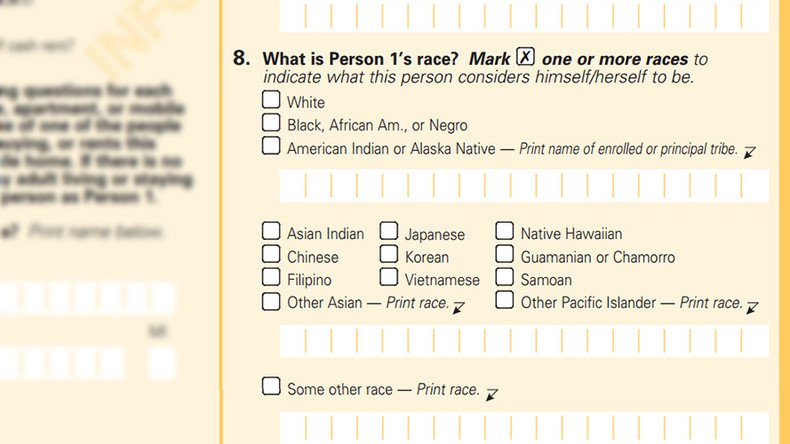White House proposes adding racial category for Middle Eastern, North African

The White House is proposing a new racial category for people of Middle Eastern or North African descent. People from the Middle East are currently considered white, but a new designation would make them eligible for various anti-discrimination measures.
The White House Office of Management and Budget advanced a proposal that would create a new Middle Eastern and North African (MENA) reporting category for the 2020 census. The definition of “Middle Eastern and North African” is pending as it currently covers everywhere from Morocco to Iran, USA Today reported.
The MENA category was created with the intention of not only including members of the Muslim faith or just ethnic Arab-Americans. Instead, it is meant to include the Coptic Christians, Israeli Jews and other religions in the same region.
Incomes up, but women and minorities still poorest – US Census Bureau https://t.co/EBCYXiGqzDpic.twitter.com/20lB0oi1yw
— RT America (@RT_America) September 13, 2016
The US Census Bureau has been trying to add a category to represent MENA citizens, but has struggled with semantic ways to include people of Turkish, Sudanese or Somali background as they technically aren’t in the Middle East or North Africa. The White House is trying to rectify the language in time for the 2020 census.
Depending on who you ask, the proposal to MENA categories to the 2020 census racial classifications could either be a big step forward to ensuring that Arab-Americans receive equal treatment under various anti-discrimination laws or it’s a step towards allowing the government to monitor and track citizens.
On the one hand, allowing the collection of census data on MENA citizens means that the government could monitor discrimination policies regarding housing, voting, school segregation and would allow them to apply for minority-based grants for small businesses from the federal government.
In addition, it would recognize MENA citizens as a community in the US. "What it does is it helps these communities feel less invisible," Helen Samhan of the Arab American Institute told USA Today. "It’s a good step, a positive step."
Head of TSA addresses retaliation against whistleblowers, long lines at airportshttps://t.co/2xI899tk6Dpic.twitter.com/yBEnoKWJB9
— RT America (@RT_America) May 13, 2016
Representative Debbie Dingell (D-Michigan) praised the proposal, saying it would allow many of her constituents to "accurately identify themselves and access the employment, health, education and representation services that are based on census data.”
Not everyone shares Samhan and Dingell’s enthusiasm for the bill, however. Some Muslim-Americans are concerned that adding the category would give the government greater ability to track their communities.
"It just aids and facilitates the state's ability to know where these communities are in a very specific fashion,” Khaled Beydoun, a law professor at the University of Detroit, told USA Today "My inclination is to think that individuals who might identify might not check the box for fear of retribution ‒ especially if Trump wins."
The proposal will be open for comments and review for 30 days.












